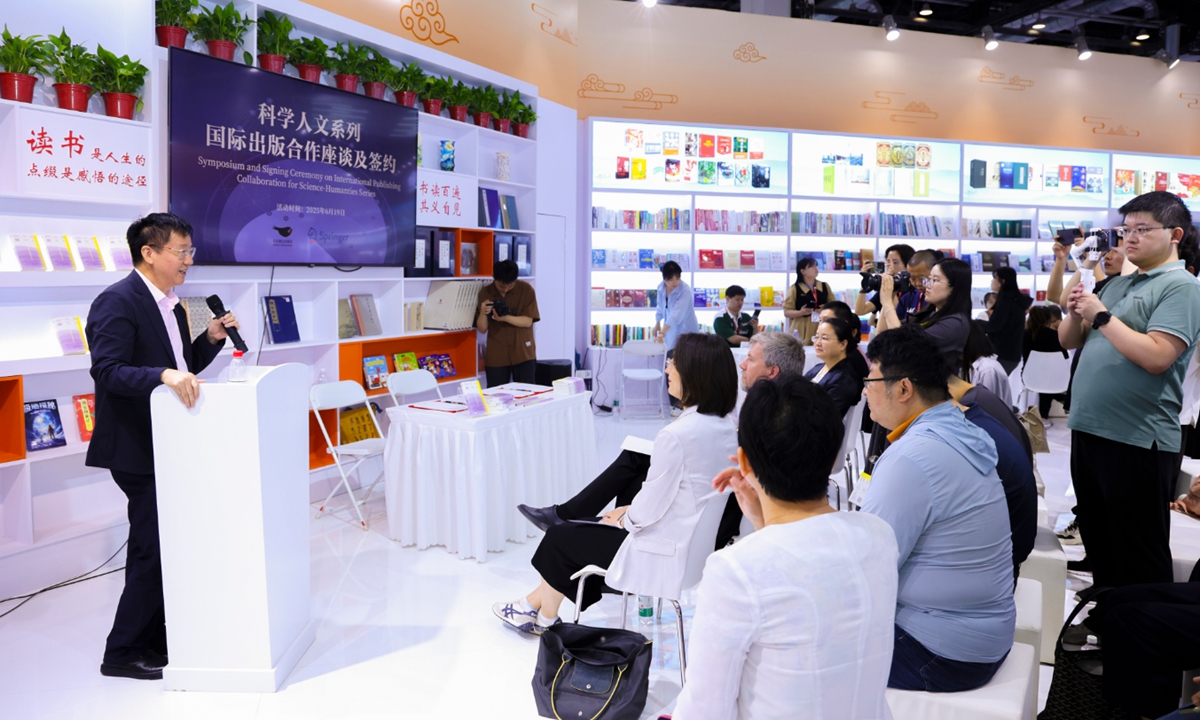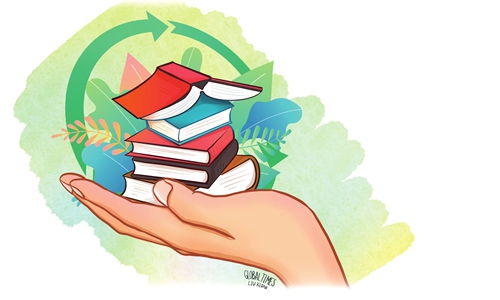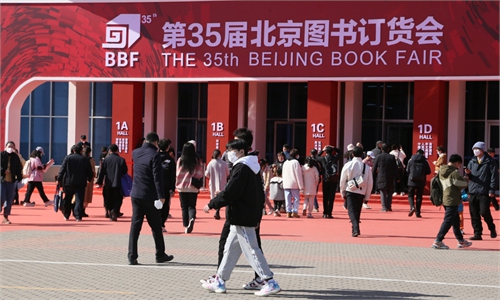ARTS / CULTURE & LEISURE
Intl publishing collaboration big at Beijing Intl Book Fair
Integration, innovation new directions for publishing

Photo: Courtesy of organizers
The 31st Beijing International Book Fair (BIBF) concluded on Sunday at the China National Convention Center. The 2025 fair focused on promoting civilizational inheritance and development, and advancing cultural exchange, mutual learning, and win-win results. Malaysia served as the Guest of Honor, according to the Xinhua News Agency.
"In recent years, the overseas presence of original Chinese academic works has clearly accelerated," Xiao Jieru from the Sanlian Publishing House told the Global Times on Sunday.
"Rather than focusing solely on Confucian classics or traditional culture as symbolic representations, there has been a growing emphasis on contemporary academic research related to Chinese society, politics, and the economy, which has drawn increasing interest from international scholarly communities," she said.
According to Xiao, scholars such as Chinese history expert Luo Pinghan and sociologist Gao Bai have already established partnerships with multilingual publishers. Some of their works have secured English and Japanese copyright agreements and are now available in overseas bookstores and university libraries.
During the book fair, the Beijing Yanshan Publishing House and Springer Nature jointly hosted the Symposium and Signing Ceremony on International Publishing Collaboration for the Science-Humanities Series. The series aims to explore the nature of science through the lens of diverse civilizations, opening a new path for global research in science and the humanities.
"China has a history spanning 5,000 years, with astronomical observations dating back at least 4,000 years," said Sun Xiaochun, dean of the School of Humanities at the University of the Chinese Academy of Sciences.
"Science is the product of many civilizations and has flourished through exchange and integration."
"When we talk about 'telling China's story well' today, the real goal is mutual understanding," he noted.
"What must be conveyed is that science and technology are created and applied within the fabric of human connection."
This emphasis on dialogue and shared understanding was also reflected in the China-Italy classic translation and publishing project, which emerged as a highlight of international cooperation at this year's fair. The initiative drew strong interest from publishing professionals and cultural institutions alike.
"The China-Italy mutual translation project is not merely a publishing collaboration, but a result of deep engagement between the two countries across national, cultural, and industrial dimensions," Federico Roberto Antonelli, cultural counselor of the Italian Embassy in China, told the Global Times.
Antonelli noted that publishing authorities and representative institutions from both countries worked efficiently in a short period of time to finalize copyright agreements, demonstrating a high level of cultural trust and institutional synergy.
"The first phase of the China-Italy mutual translation project will cover 20 classic works," Li Pengyi, vice president of the China Publishing Association, told the Global Times on Sunday. "In the future, it may expand to 50 or even 100 titles, and the model could be extended to other Belt and Road countries."
In addition to the China-Italy mutual translation project, the 2025 BIBF featured a hall dedicated to digital publications, highlighting how the Chinese publishing industry values the fusion of "technology and paperbacks."
Taking the project "Libraverse" at the hall as an example, it is a digital exhibition that transforms print content into digital experiences. Through wearing devices like VR glasses, the hall allows readers to "walk" into books, and interact with the characters within.
Another display called AI Rays also debuted at the event. Through AI technology, the exhibit provided accurate answers to readers' questions about a book, while also assisting readers to make customized reading diagrams.
While noting digital tools are "destined to drive the transformative upgrading" of the traditional paperback industry, industry analyst Li Ke'an told the Global Times that "technology" is just one component in China's publishing industry that is seeking integrated development.
"At the fair, you can see the publishing industry has been tied closer to traditional IPs and embraced the cultural creative industry," Li noted. Named "Chinese traditional cultural IPs," an exhibition area at the BIBF showcased how the publishing industry can work with the film, animation and gaming sectors by developing hot IPs like Ne Zha and Black Myth: Wukong.
Debuting for the first time in 2025, the BIBF SHOP was a cultural creative market that featured nearly 30 types of derivative products, including book IP-inspired badges, pillows, and a type of edible "literary chocolate."
Xue Liuye, a 24-year-old visitor, told the Global Times that she was mostly intrigued by the shop's Harry Potter-themed creative products. She told the Global Times that her experience with English book merchandise at the book fair was "exciting" and made her feel that the BIBF is more than just a platform for book trading, but a vibrant "crossroads of global publishing cultures."
Integrating global publishing resources is indeed a goal of the BIBF. For this reason, the event designates a foreign country as the Guest of Honor each year. Malaysia was selected as the one for 2025.
The Guest of Honor Pavilion featured a unique exhibition showcasing 50 books related to Malaysian literature, history, culture, politics, and economics.
"In the past, the Chinese publishing industry was focused on copyright trading, but now the industry goes beyond paperbacks to become a platform for cultural sharing. Books are just a medium," Li noted.



